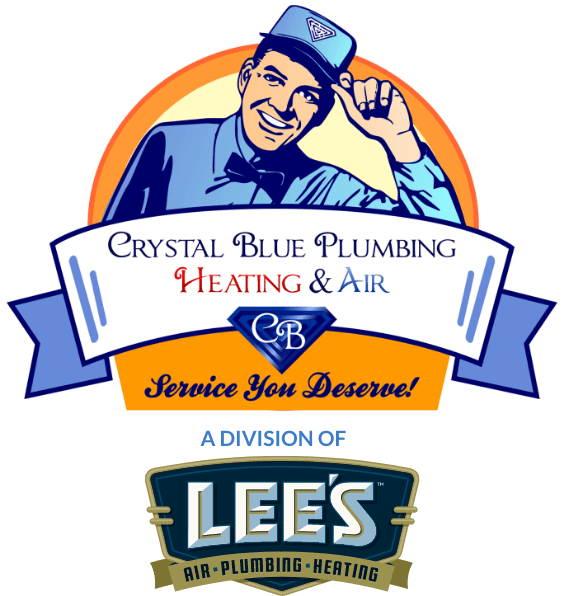Do Home Warranties Cover HVAC System Repairs?
When things break down in your Sacramento, CA home, paying out of pocket for repairs can create hardship. This is especially true when it comes to major appliances and essential home systems. The good news is that there may be a way to sidestep this spending entirely. Home warranties or home service agreements cover the costs of replacing or repairing non-functioning equipment that has succumbed to age-related wear. These agreements help homeowners avoid the financial stress of keeping their refrigerators, washing machines, and dishwashers working. In some instances, home warranties even cover the costs of replacements or repairs for HVAC systems.
Different Home Warranty Types
Not all home warranties are created equally. Some provide a far greater range of protections than others. Many low-cost warranties only cover home appliances such as built-in microwaves, garbage disposals, dishwashers, freezers, refrigerators, and washing machines. Although heaters and air conditioners are often referred to as appliances, some home warranty companies recognize them as home systems. To ensure that your HVAC system is fully covered by your service agreement, you must choose a warranty that covers both home appliances and home systems. A home systems warranty will cover your HVAC system, electrical system, and plumbing system or essentially, fixtures that are considered inherent parts of your home.
When warranties recognize furnaces, heat pumps, and air conditioners as home appliances, there may be certain components left unprotected. These include features that are hard-wired into the building or considered part of the building structure such as smart thermostats, HVAC air ducts, and any connected pipes, discharge lines, and refrigerant tubes.
Home appliance and home systems warranties can be purchased separately or as part of combination home warranty agreements. Thus, if you already have a home appliance warranty that provides limited protection for your HVAC system or none at all, you can always supplement this policy with a home systems warranty. Combination policies always provide the most comprehensive range of HVAC protections.
Not All HVAC Repair Issues Are Wear-Related
Even if your HVAC system is fully covered by your home warranty, this doesn’t mean that your warranty will cover all HVAC repairs. Home warranties only cover age and wear-related damages like worn bearings, belts, capacitors, thermocouples, and fans. They do not cover the repair or replacement costs caused by perils like fires, floods, leaks, or the structural collapse of building materials. Events like these are covered by home insurance policies instead, and only when the perils in question are recognized as covered perils.
Some HVAC problems arise as a result of assembly-related errors or defective components. For instance, if your furnace manufacturer designed your heater with a defective intake valve, you’ll need to submit a claim with the manufacturer directly. All new heating and cooling equipment is covered by manufacturer warranties for a period of three to 20 years. This dramatic difference in the duration of coverage reflects different equipment types and component-specific protections. For instance, while your furnace might have a five- or 10-year limited parts warranty from its manufacturer, its heat exchanger could have full coverage from this same entity that lasts up to 20 years.
Before submitting a home warranty claim for HVAC problems, it’s important to determine the ultimate source of these issues. If repairs are wear-related and your warranty covers the affected portion of your heating and cooling equipment, you should submit your appeal for payment or reimbursement to your home warranty provider rather than your home insurance company or your equipment manufacturer.
Home Warranties Are Mutually Binding Agreements
One major caveat of home warranties is that they only work when homeowners do their part too. Like all warranties and insurance policies, home service agreements are mutually binding. When you read your policy documents, you’ll find that your warranty issuer has clearly defined the provisions it’s willing to make along with the requirements you must adhere to. Failing to comply with the terms of your home warranty could result in delayed claims, claim denials, or the outright voidance of all relevant protections.
Required Maintenance
Routine maintenance is a common requirement of home warranties, manufacturer warranties, and home insurance policies. Most warranty and policy issuers require professional maintenance service at least once annually for both heaters and air conditioners. These agreements might additionally stipulate the need for regular HVAC air duct inspections or cleanings, routine filter changes, and other mandatory forms of upkeep.
Timely Reporting
HVAC problems are rarely static. They tend to worsen the longer they’re left unchecked, especially when homeowners continue using their heating and cooling equipment. If your air conditioner starts making strange noises, emitting odd smells, or failing to do its job correctly, waiting to schedule service could make the necessary repairs more costly. With time, small and isolated problems eventually impact other functions and components. Home service agreements require timely reporting of HVAC issues as a means of limiting their own spending.
Proof of Maintenance
When submitting home warranty claims, you may be asked to provide proof of maintenance. Having a way to verify routine HVAC service can expedite claims approvals. However, even when proof of maintenance isn’t required, home warranty companies have ways of determining whether it’s been skipped. For instance, you might be limited to only working with HVAC companies that have partnered with your home warranty company. These entities will report all evidence of neglect after completing their inspections and before beginning claims-related replacements or repairs. Thus, if your air conditioner, heat pump, or heater ever fails due to built-up debris, your warranty provider will know.
Incorrect Equipment Sizing and Home Warranty Protections
Another important stipulation of home service agreements is proper sizing and installation. This is one of many solid reasons to never purchase a heater or air conditioner at a big box store and install it on your own. Heaters and air conditioners that are too large or small for their service areas experience rapid wear and develop multiple stress-related problems throughout their lifetimes.
Beware of Mandatory Waiting Periods
The primary benefit of having a home warranty is being able to repair or replace aging appliances and systems without radically tweaking your budget or forgoing other essentials. If you notice that your HVAC system is wearing down, you should purchase a home warranty as soon as possible. In most cases, these warranties come with mandatory waiting periods. Waiting periods typically last just 30 days, but throughout this time, any breakdowns that occur must be paid for out of pocket.
Deductibles and Service Fees
It’s also important to note that repairing or replacing covered equipment isn’t always totally free of charge. Some home warranties come with deductibles and service fees. If your plan has a deductible, you may be required to pay several hundred dollars or more out of pocket before your warranty protections kick in.
Service fees are charged per service call. The average service fee for a combination home warranty is $75. However, some lower-priced home service agreements could charge as much as $150.
The Importance of Reading Your Policy Documents
Long before submitting your very first claim, it’s important to read your policy in its entirety. If necessary, you can use a digital tool to help you better understand the legal jargon it contains. This will give you a clear understanding of your rights, protections, and requirements. It will also limit the risk of unfortunate surprises and keep you from unintentionally voiding your coverage.
We’ve been serving Sacramento, CA, since 1976. We offer outstanding heating, cooling, plumbing, and air quality services. We also provide zone control systems, drain cleaning, and preventative maintenance plans. If you need HVAC maintenance or repairs, call Crystal Blue Plumbing, Heating & Air today!







